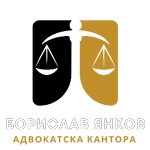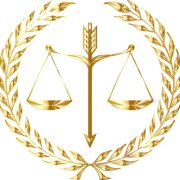Best Animal Law Lawyers in Bulgaria
Share your needs with us, get contacted by law firms.
Free. Takes 2 min.
Or refine your search by selecting a city:
List of the best lawyers in Bulgaria
About Animal Law in Bulgaria
Animal Law in Bulgaria encompasses a wide array of legal issues related to the treatment and welfare of animals. This area of law is designed to protect animals from cruelty, abuse, and neglect, while also regulating aspects of animal ownership, breeding, and care. Bulgaria's commitment to animal welfare is evident through its legislation and adherence to European Union standards. Laws are in place to promote responsible pet ownership, regulate commercial activities involving animals, and establish protocols for handling cases of animal cruelty.
Why You May Need a Lawyer
Individuals may require legal assistance in various situations involving animal law. Common scenarios include disputes over animal ownership or custody, cases of animal cruelty or neglect, issues involving pet-related damage or injury, and challenges with business compliance for animal-related enterprises. Legal assistance might also be necessary for navigating complex regulatory requirements when importing or exporting animals, or when facing charges under local animal welfare laws.
Local Laws Overview
Bulgaria has enacted several laws and regulations that specifically aim to protect animals and ensure their welfare. Key pieces of legislation include the Animal Protection Act, which provides comprehensive guidelines on the treatment of domestic and wild animals, prohibiting their abuse and ensuring proper care. There are also specific regulations pertaining to the breeding, sale, and transportation of animals. Bulgarian law requires pet owners to register their dogs and adhere to vaccination requirements. Authorities are tasked with enforcing these laws, and penalties for violations can include fines, revocation of licenses, or even imprisonment in severe cases.
Frequently Asked Questions
What is considered animal cruelty under Bulgarian law?
Animal cruelty involves any action that causes unnecessary suffering or harm to an animal, including physical abuse, neglect, or failure to provide adequate care and shelter.
Do I need to register my pet in Bulgaria?
Yes, pet owners are required to register their dogs with local municipalities and ensure their animals are vaccinated according to national guidelines.
What are the consequences of violating animal welfare laws?
Violations can result in fines, legal action, or imprisonment depending on the severity of the offense. Businesses may also face the revocation of licenses.
Can I transport my pet internationally from Bulgaria?
Yes, but it requires compliance with Bulgaria’s and the destination country’s regulations concerning vaccinations, microchipping, and possibly quarantine.
How are disputes over pet custody typically resolved?
These disputes can often be resolved through mediation or legal intervention, depending on the circumstances and agreements between the involved parties.
What steps should I take if I witness animal abuse?
Report the incident to local authorities or animal welfare organizations. Providing evidence such as photographs or witness statements can aid in investigations.
Are there specific laws for exotic pet ownership?
Yes, owning exotic pets may require special permits, and owners must adhere to specific care and containment standards to ensure both animal welfare and public safety.
Can businesses be held liable for pet-related accidents on their premises?
Businesses are responsible for ensuring a safe environment and may be liable for injuries or damages caused by animals on their premises under certain conditions.
How can someone challenge a fine or penalty related to an alleged animal law violation?
Individuals can contest fines or penalties by filing an appeal with relevant authorities or through the courts, often requiring the assistance of a legal professional.
What protections exist for wild animals in Bulgaria?
Wild animals are protected under various conservation laws and regulations that prohibit hunting and exploitation without the proper licenses or permits.
Additional Resources
For more information or assistance, individuals can contact local animal welfare organizations, such as the Bulgarian Society for the Protection of Animals, or governmental bodies like Bulgaria's Ministry of Agriculture, Food and Forestry. These entities provide guidance, support, and resources for addressing animal law issues. Legal professionals specializing in animal law can also offer expert advice and representation.
Next Steps
If you are in need of legal assistance in animal law, it is advisable to consult with a lawyer specializing in this field. Begin by gathering all pertinent information and documentation related to your case. Consider reaching out to a local animal welfare organization for preliminary advice and referrals. Legal directories and law firms focusing on animal law can offer professional counsel and support tailored to your specific situation.
Lawzana helps you find the best lawyers and law firms in Bulgaria through a curated and pre-screened list of qualified legal professionals. Our platform offers rankings and detailed profiles of attorneys and law firms, allowing you to compare based on practice areas, including Animal Law, experience, and client feedback.
Each profile includes a description of the firm's areas of practice, client reviews, team members and partners, year of establishment, spoken languages, office locations, contact information, social media presence, and any published articles or resources. Most firms on our platform speak English and are experienced in both local and international legal matters.
Get a quote from top-rated law firms in Bulgaria — quickly, securely, and without unnecessary hassle.
Disclaimer:
The information provided on this page is for general informational purposes only and does not constitute legal advice. While we strive to ensure the accuracy and relevance of the content, legal information may change over time, and interpretations of the law can vary. You should always consult with a qualified legal professional for advice specific to your situation.
We disclaim all liability for actions taken or not taken based on the content of this page. If you believe any information is incorrect or outdated, please contact us, and we will review and update it where appropriate.
Browse animal law law firms by city in Bulgaria
Refine your search by selecting a city.















